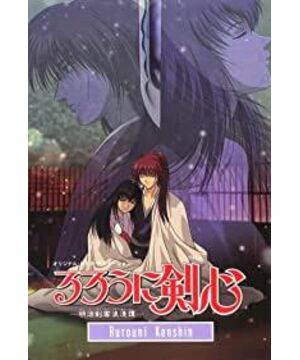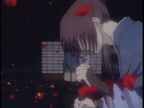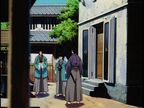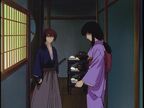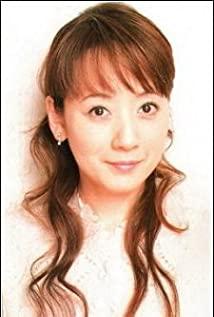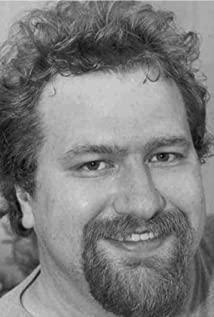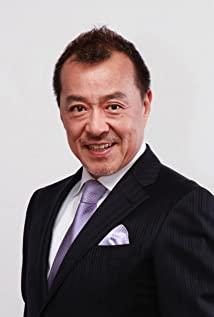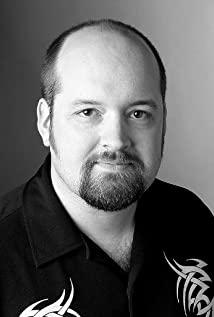I just read some debates about the cross wounds, nothing more than to whom did Barr say "I'm sorry, husband", what is the meaning of the cross wounds and so on. After a little bit of sorting out my thoughts, I feel that it is a pity not to write it down. So here I only talk about the details of the cross injury and talk about my own views.
The biggest feeling: After reading so many arguments, I feel that everyone's analysis of Kenshin is becoming more and more profound, but it is really simple.
Okay, let's talk about the first question first, to whom was Ba's dying sentence "I'm sorry, husband" addressed? The answer has always been 1. Kenshin; 2. Kiyosato; 3. Kenshin and Kiyosato.
My opinion: only for Kenshin, nothing else.
why? In fact, everyone's guesses are all derived from the Chinese "I'm sorry, husband", and if we directly read the Japanese original text, we know that this is an illusion caused by translation.
The original words of Ba's last words are "ごめんなさいあなた", of which ごめんなさい means sorry, this translation is no problem. There is a problem when あなた translates to "husband". あなた is the second-person pronoun (you) in Japanese, and represents an extremely intimate relationship especially only when it is symmetrical between husband and wife. Therefore, Ba's last words were actually "I'm sorry to you (loving name between husband and wife)", and after being translated as "Husband", it emphasized its implied meaning too much, but inadvertently canceled the special reference to あなた (you) in the second person. This sentence is what Ba Sheng said face to face when he fell into Jian Xin's arms at the last moment and looked down at Jian Xin with his head down. "You" can only refer to Kenshin, of course. And translating it into "husband" actually cancels the specific reference to "you", so naturally many people will add the illusory Qingli to it.
After explaining who Ba's last words were addressed to, it will be interesting to look at the meaning of the cross wound. Many people interpret Ba Zhu's knife as representing Qingli's revenge. Of course, it seems self-consistent when combined with the admiral's understanding of "Husband" as Qingli. In fact, it is precisely that he completely misunderstood Ba, and also completely did not understand Ba.
why? Because in the end, Ba has long been concerned about "revenge for Qingli", and he will not feel that he is qualified to "revenge" Kenshin on behalf of Qingli. In a "Remembrance", not only is Jian Xin constantly torturing himself, and finally finds his true self, but also Ba is constantly torturing himself, and finally finds his true self. It's just the latter point that many people fail to grasp the essence of.
How to say this? Let's review Ba's inner monologue starting at 23:42 in the third act "Xiao Li Shan", that is, Ba's psychological activity after Jian Xin said "I want to protect you", this is very important - "He died in a Where I didn't know it at all, my happiness disappeared with him. I couldn't grasp the happiness in front of me, but it was my own fault. The fault was that I didn't tell him what I wanted. At that time, if I had Courage... The more I thought about it, the more I felt that if I didn't hate someone, I would go crazy, so I plunged into the plan to assassinate you" - who was responsible for Kiyosato's death? Kenshin? Kenshin was indeed the one who killed Kiyosato directly, but the real person who was most responsible, at least in Ba's consciousness, had already recognized it - it was Ba himself.
The context of Kiyosato's death is clear. After Ba and Kiyosato got engaged, Kiyosato, because he was the second son of the Wu family (Japan is a system of primogeniture, the second son cannot inherit the family business), thought that he could not give Ba happiness, so he joined the Kyoto Shodai, trying to make some achievements in the troubled times and make Ba. I can live a happy life (act 3 Xiaolishan starts at 14:48), but Ba feels that he is very happy to be able to marry Qingli, but he fails to let Qingli know his heart (act 3 Xiaolishan starts at 24:55) )., he is actually very satisfied as long as he is with Kiyosato (act 4 Cross Injury starts at 07:10) In other words, Kiyosato going to JD. Kyoto dared to take on the first-line task of the inspection team again, and it was almost only a matter of time before he was killed. If it wasn't for Kenshin, he would have died by someone else's sword.) Ba is already very happy, but she did not show happiness at all, making Kiyosato feel that she is not. Happiness, so he went to risk his life so that Ba could be happy. It is logical and self-consistent that Ba rationally believes that he is the person most responsible for killing Qingli.
This is also the reason why Ba later chose to hate Jianxin - "The more I think about it, the more I feel that if I don't hate someone, I will go crazy, so I devote myself to the plan to assassinate you" - hating Jianxin is not really hate Kenshin, but the psychological effect of shifting the responsibility, deceived herself into believing that she hated the murderer who killed Kiyosato, in order to reduce the self-blame-otherwise the heavy self-blame would drive her crazy.
But when she really threw herself into the assassination plan and came into contact with Kenshin, this self-deceiving "hatred" actually changed Ba's psychology. People's actions produce guilt and self-blame towards Jianxin, and then on the tone of guilt, love is born along with living together with Jianxin. Kenshin and Ba's love is wonderfully based on both feeling guilty and indebted to each other at the same time.
Therefore, after the love between the two parties sublimated, Ba also faced himself frankly, and clearly made it clear that he was the person most responsible for killing Qingri - not Kenshin. Therefore, in the entire fourth act, Ba does not have the concept of revenge on Kiyotari to Kenshin - which is equivalent to returning Ba to the state of deceiving himself before.
The treatment of the comic version here is actually quite clear and straightforward:
Ba's thoughts are very clear: I killed Kiyosato, and I am still killing Kenshin, and I don't want to kill anyone anymore.
But this is too straightforward. As a form of artistic expression, OVA's handling is indeed much more artistic.
Above, we explained one thing, the cross wound, in fact, did not mean to take revenge on Kenshin for Qingli. So how to understand it?
To understand Ba's sword, we must first understand Kiyosato's first sword.
Kiyosato left this knife on Kenshin's face. Generally speaking, according to Iizuka's explanation, it is understood as Kiyosato's huge resentment. But is that all?
Kiyosato's knife was understood to be in addition to the great resentment of the slain deceased. In addition to every time he goes out to kill, he also oozes blood from time to time. In a sense, it is also another symbol - Katsura Kogoro said that Kenshin "is still the same as before, spotless", but "felt a huge gap between the 'executioner' and the 'real self'". This is the personality tear caused by the contradiction between the pure nature in Kenshin's heart and the executioner's ruthless contempt for the life characteristics of others. This kind of tearing troubled Kenshin, making him feel that drinking is a bloody smell. He had to use all kinds of righteousness and use empty words like killing people for the happiness of the people to compare himself with himself, to avoid facing the reality. He himself also said that once he knew about the murdered person, he would not be able to do anything, which shows the tear.
So what about Ba's knife?
Let's start with one thing.
In the "Remembrance", the technique of symbolism is used a lot, and there are even multiple symbols applied to one thing. Here we talk about one of the easiest symbols to see - the fallen flower that Qingli stretched out his hand desperately to catch but was barely able to reach when he died. This is the camellia that fell from the whole flower. In Japan, it has a special name - Tsubaki flower. This flower actually has multiple symbols. Here we only talk about the most obvious symbol - it symbolizes the happiness of Ba. In killing Kiyosato, Kenshin stepped on a tsubaki flower in one step, which meant that he shattered Ba's happiness this time. And the chinchilla, which Qingli desperately failed to reach, symbolizes that he died only one step away from giving Ba happiness within reach. This is all obvious.
Then, in the fourth scene of the cross wounds, the phantom of Qingli holding a toon flower in his blood-stained hands appeared in front of Ba, but when Ba watched carefully, Qingli's phantom disappeared, but the toon flower was left on the ground. What is this talking about? ? Have you noticed Kiyosato Mirage's expression and movements? He raised his hand and looked at the chunhua in his hand, smiled at Ba, and disappeared, leaving the chunhua on the ground. Considering that the toon flower symbolizes the happiness of Ba, in fact, the symbolic meaning here is very clear. Kiyosato: I tried to make you happy, but I failed in the end. Now your happiness is in front of you, please grab it yourself.
In the fourth act, An Naiwu's old man has been using Qingli to stimulate Ba, attacking Ba's love for Kenshin. Like many viewers, he believed that Ba Youwei Qingli's revenge against Jian Xin was only suppressed by Ba's love for Jian Xin. What he has to do is to arouse Ba's yearning for Qingli, overwhelm his love for Jianxin, and let Ba hate Jianxin again. But he was completely wrong, and that's why he failed. It has been explained above that after Ba dare to face himself, he has clearly determined that he is the person most responsible for killing Qingli, and naturally he will no longer hate Jianxin. Therefore, the stimulation of the old man not only failed completely, but also made Ba better understand Qingli's psychology, more aware of his responsibility, and found what he should do now - stop doing nothing like before and watch yourself and your loved ones. The happiness of the man slips through his fingers. I love your heart, I want you to know. The happiness of me and you, we have to work hard to grasp it in our own hands.
Of course, Ba knew that Jian Xin's heart would be filled with all kinds of self-blame and guilt at the moment. If he misunderstood that his real purpose was revenge, Jian Xin would end up begging for death, which was not what she wanted.
We saw that the last Ba rushed out for Kenshin to block the fatal blow of the old man, and was killed by Kenshin, who was holding the last knife with the old man's determination. But from rushing out to making a cross on Jianxin's face and leaving the last words of "I'm sorry", Ba conveyed his intentions to Jianxin completely and accurately, not only saving Jianxin's life , also from the abyss of doubt and self-blame to save Kenshin's almost collapsed psychology.
So what does the cross wound that Ba draws at the end represent? Forgive? In a sense, it is not appropriate to say this. In the death of Qingli, Ba has already made it clear that he is the most responsible, and naturally he will not think that he is qualified to forgive others. This sword contains not so much forgiveness for Kenshin's crime of killing Kiyosato, but rather to let Kenshin feel relieved about it. Of course, this is not her main intention of this knife.
I think there are two main things about Ba's thoughts about this knife
. The two of them just made a vow to protect the first life last night. Now, one day later, they will die, and they will not be able to accompany him for the first time as promised. This knife is full of their own nostalgia and reluctance. Since then, separated from each other, only the love contained in this knife will accompany the sweetheart for a lifetime. The last sentence "I'm sorry to you", of course, is not because of a knife in Jian Xin's face, but because he agreed to go on together, and now he is going to miss the appointment.
The second is seal and protection. As mentioned above, the knife drawn by Kiyosato is actually a personality tear caused by the contradiction between the pure nature in Kenshin's heart and the executioner's ruthless and cruel contempt for the life characteristics of others. Then, Yuba's love allows Kenshin to find a new way to protect his happiness. Katsura Kogoro asked Ba to be the scabbard of Kenshin, in fact, he wanted to seal the personality of the executioner and protect the goodness of Kenshin's nature. Now that Ba knows that he is about to die, the knife at this last moment has turned his guardianship into a cross wound, and will always be with Jianxin.
This is what Ba accurately conveyed to Jianxin in just two short actions and a sentence, and it is precisely because of this accurate communication that although Jianxin fell into deep pain after Ba's death, Not confused either.
At this time, let's look at the end of the OVA where Jian Xin fell asleep with a knife under the tree, and Ba's phantom surrounded him from behind - this is the essence of the cross wound, it is not only the endless attachment of the deceased lover, but also Ba's belief in the bloody storm Kenshin's pure nature is guarded in the chaotic world of murder.
View more about Rurouni Kenshin: Trust and Betrayal reviews


